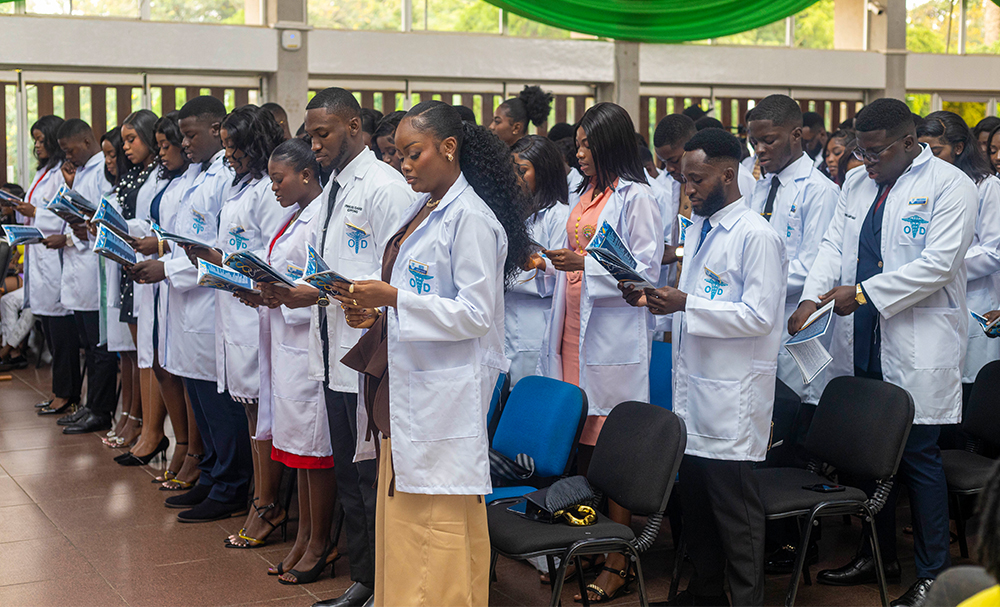The Department of Optometry and Visual Science at the Kwame Nkrumah University of Science and Technology (KNUST), in collaboration with the Ghana Optometric Association (GOA), has jointly celebrated the 2025 Refractive Error Day and the 8th White Coat Ceremony.
Held under the theme “Bridging the Gap: Dispelling Refractive Error Myths to Improve Access,” the event highlighted national efforts to raise awareness, debunk misconceptions, and expand access to eye care services across Ghana.
The ceremony brought together students, faculty, eye care professionals, and stakeholders in the health sector. It also marked a major milestone for the Optometry Class of 2027, who were formally inducted into the clinical phase of their training with the symbolic donning of white coats.
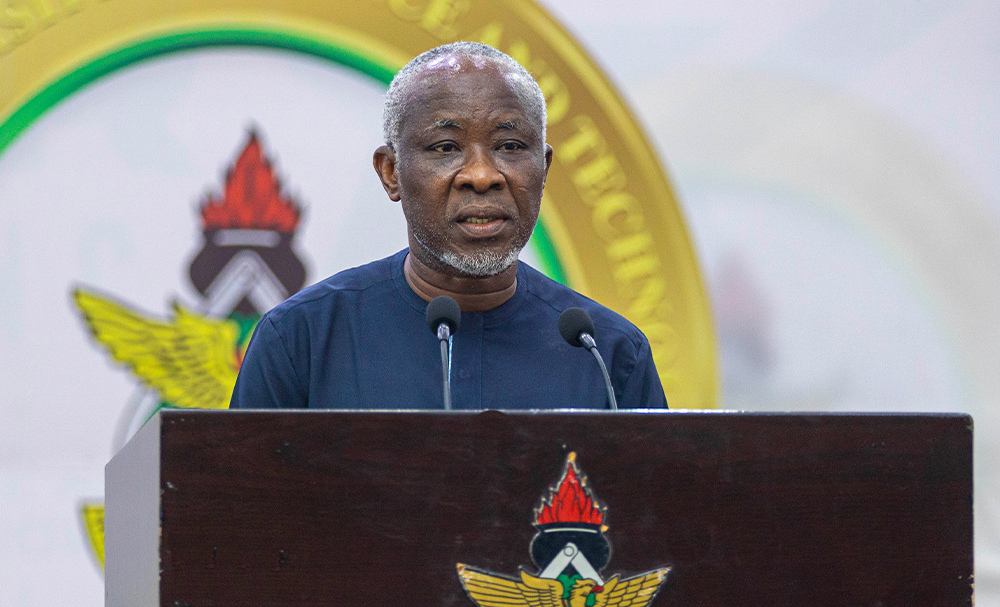
Prof. Mohammed Abdul-Kabir, Head of the Department of Optometry, said the global burden of refractive errors is rising, with more people projected to need corrective lenses in the coming years.
“A key factor in preventing avoidable blindness and visual impairment is early detection. Accessibility, affordability, and quality eye care must be strengthened, particularly in low- and middle-income countries,” he said.
Abdul-Kabir also outlined strategies to strengthen eye care services in Ghana, including expanding ophthalmic services, increasing trained personnel, and equipping facilities with diagnostic tools.
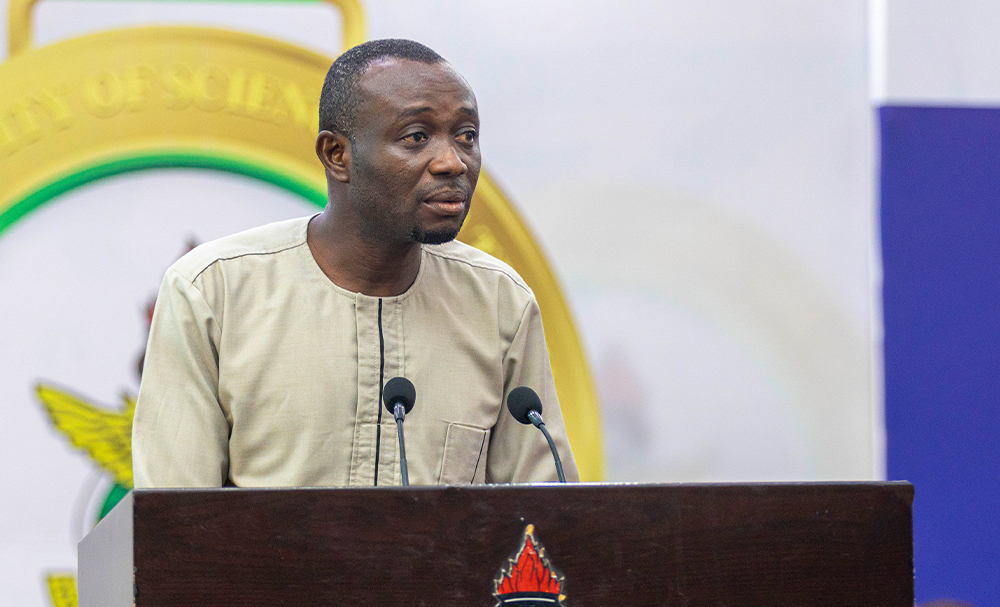
Prof. Emmanuel Kwesi Abu, Associate Professor of Optometry at the University of Cape Coast, addressed myths surrounding corrective eyewear and reaffirmed the critical role of optometrists in managing refractive errors.
“As primary eye care providers, optometrists are essential to preventing blindness and ensuring quality vision for all. To our students, the white coat is not just a uniform, it is a symbol of responsibility, integrity, and compassion,” he said.
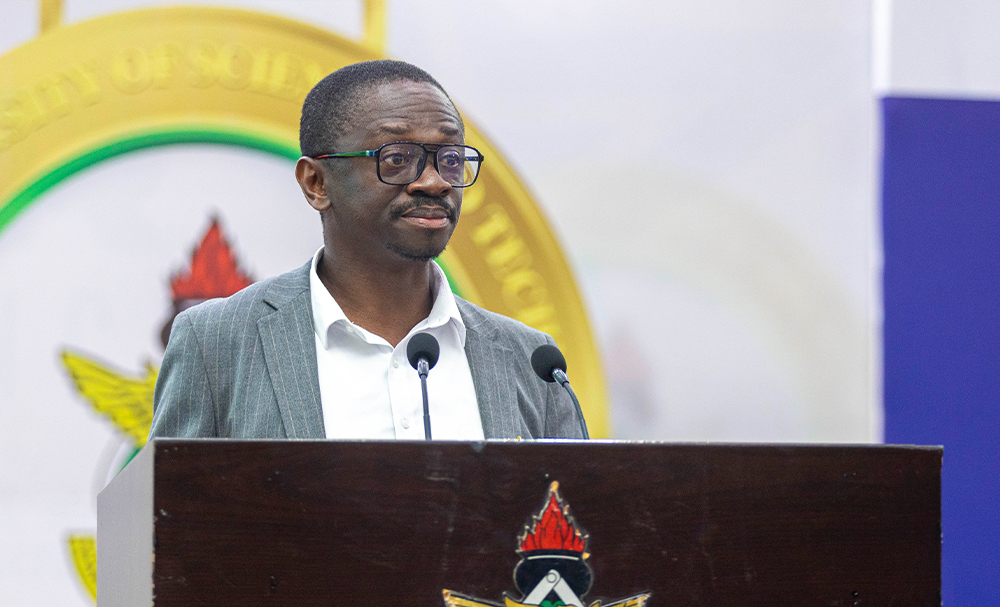
Prof. Samuel Bert Boadi-Kusi, President of the Ghana Optometric Association, spoke on the national impact of uncorrected refractive errors and called for broader policy support.
“As an association, we are working to raise public awareness and advocate for the integration of refractive error services into the National Health Insurance Scheme,” he said.
He urged the government to recruit more optometrists into the public sector, particularly in underserved areas, and called on the Ministry of Health to address the welfare and remuneration of eye care professionals.
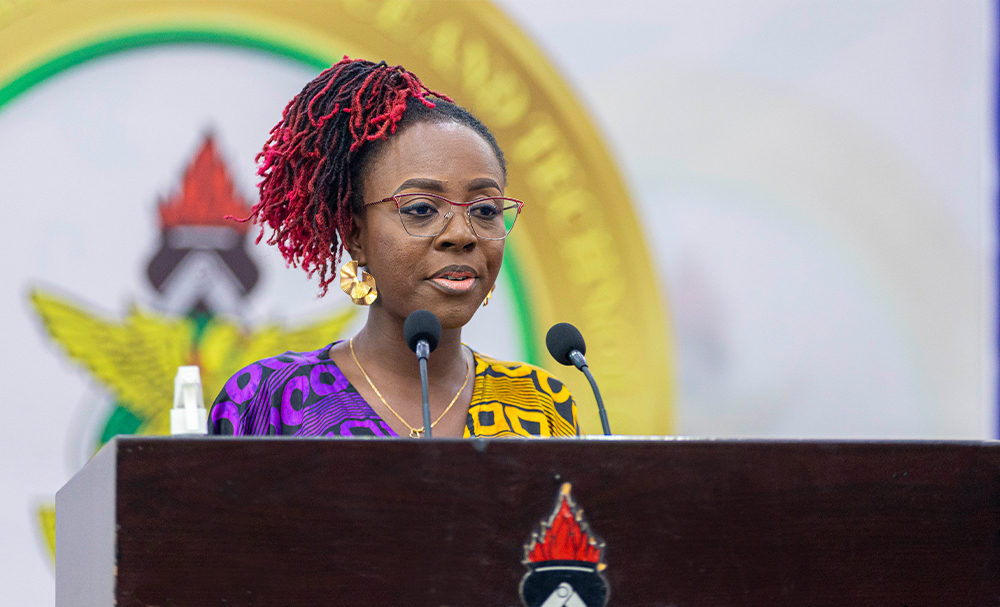
Dr. Naa Kowah,Chief Optometrist at Trust Hospital addressed persistent myths about eye care, including the belief that wearing glasses weakens the eyes.
“Glasses are not a weakness, they are a tool for empowerment. Eye care is not a luxury for the wealthy; it is a right that must be accessible to all,” she said.
The ceremony ended with the formal robing of Optometry Class of 2027 students, symbolising their entry into clinical training.








